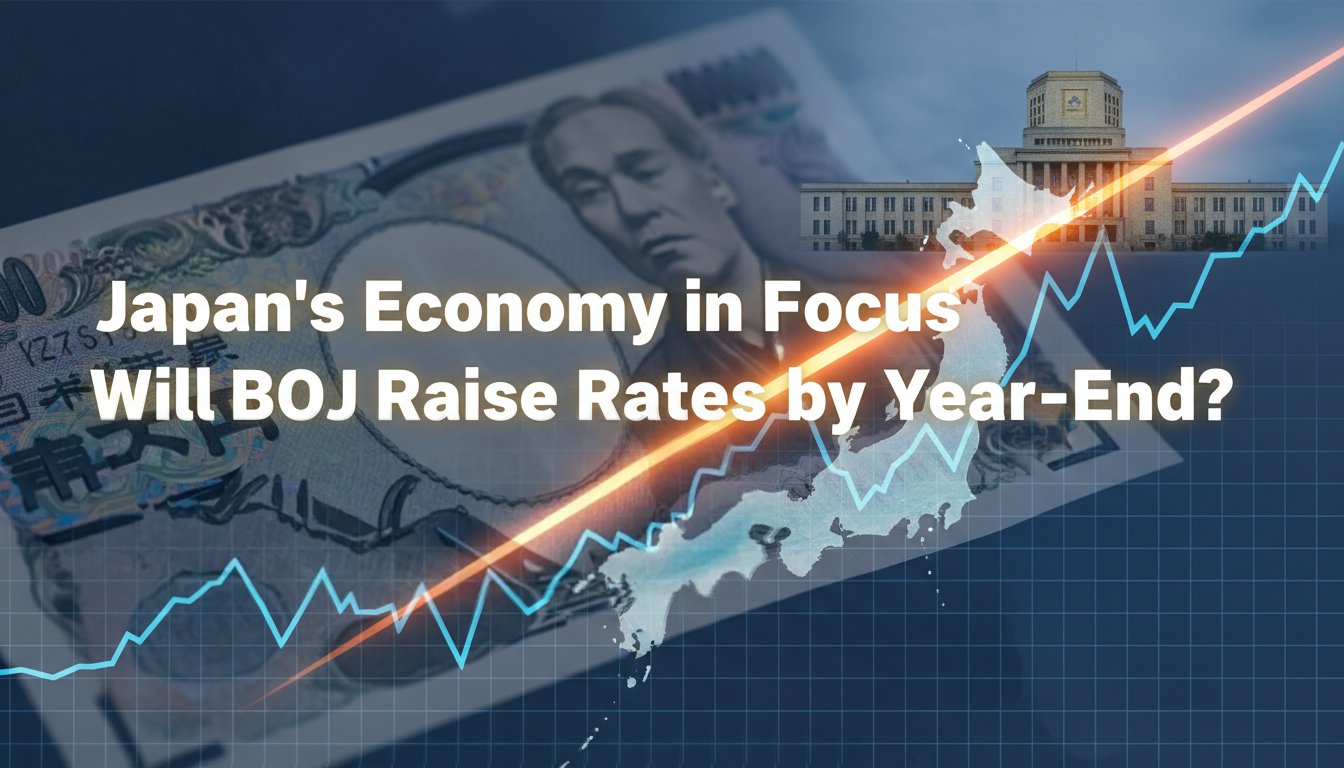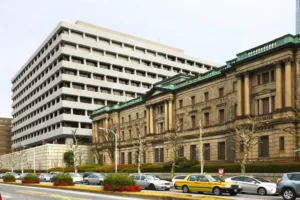
Japan’s Central Bank Could Raise Rates by Year-End
Despite a political shake-up in Tokyo, most economists are betting the Bank of Japan (BOJ) will hike interest rates before the year ends. A recent Reuters poll revealed that 60% of economists expect the BOJ to lift short-term rates from 0.50% to 0.75% this quarter, signalling growing confidence in policy tightening.
Even with Prime Minister Sanae Takaichi now at the helm known for her fiscal dovishness economists largely agree that Japan’s central bank is unlikely to abandon its plans.
“The balance within the BOJ’s policy board is clearly shifting towards interest rate hikes,” said Kento Minami, senior economist at Daiwa Securities. “While global uncertainties may delay the move, inflationary pressures from the weakening yen make a hike increasingly likely.”
When Could the Next Rate Hike Happen?

Economists are split on timing:
- 46% predict a hike in January.
- 31% see it coming in December.
- 14% expect an October increase.
Overall, nearly 96% of surveyed economists expect borrowing costs to reach at least 0.75% by March next year.
Financial markets are cautiously pricing in the shift, showing roughly a 40% chance of a rate hike before year-end.
Political Change Doesn’t Deter Rate Hike Plans
Takaichi’s government has pledged to boost spending on energy and economic security, emphasizing “responsible, proactive fiscal policies.”
However, economists remain divided on how her policies will affect Japan’s economic outlook:
- 67% are uncertain if they approve of her fiscal direction.
- Nearly two-thirds are concerned about long-term fiscal health.
“With the ruling party losing its majority in both houses, it may have no choice but to pursue expansionary fiscal policies,” explained Junki Iwahashi, senior economist at Sumitomo Mitsui Trust Bank. “Rising long-term yields could act as a natural brake on excessive spending.”
Why the BOJ Is Likely to Hike Rates
Several factors support a tightening move:
- Weak yen boosting inflation risks.
- Rising inflationary pressures requiring gradual policy normalization.
- Global economic uncertainties, which could delay but not derail hikes.
Economists agree the pace of rate increases will be a balancing act between economic stability and fiscal/political pressures.
Key takeaway for investors and consumers: Expect gradual tightening, which could impact:
- Mortgage and loan rates
- Investment yields
- Currency fluctuations
What This Means for You
Whether you’re a market watcher, investor, or everyday consumer, Japan’s monetary policy could have ripple effects:
- Higher interest rates may strengthen the yen, affecting exports.
- Borrowing costs for loans and mortgages may rise.
- Global markets could react to shifts in Japanese policy.
“Investors should monitor BOJ announcements closely. Even small rate hikes can move markets,” advises Minami.
